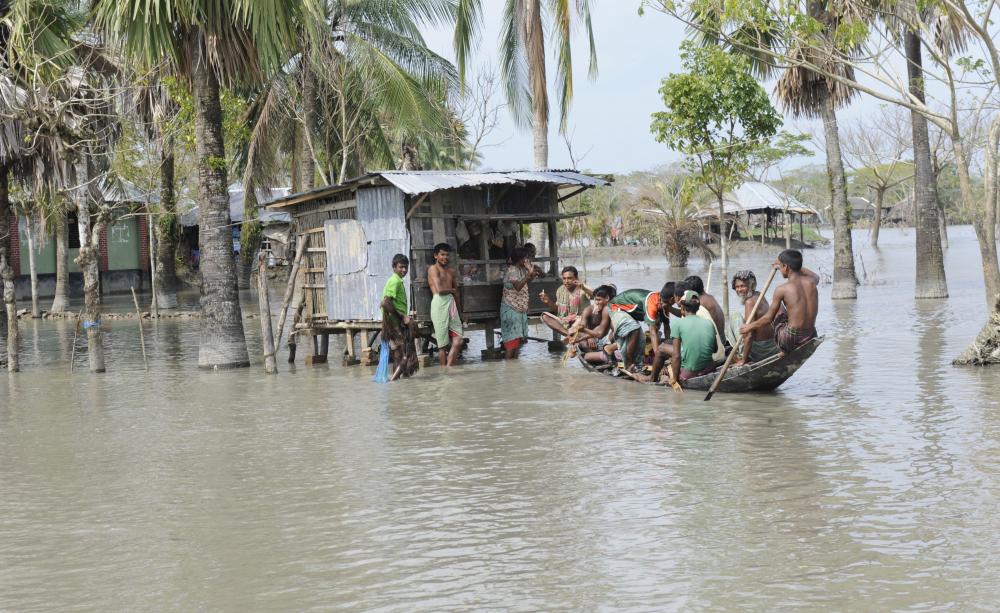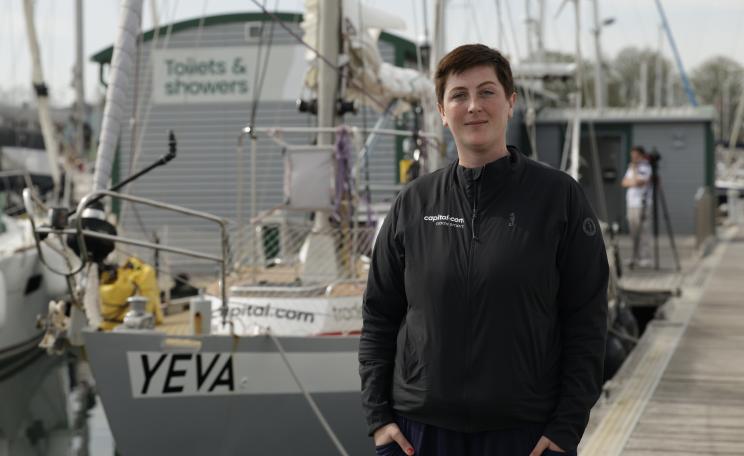Increasing support to those most vulnerable to the impacts of climate change at home and abroad will ensure that we leave no-one behind.
Lockdown was tough for all of us, but many people noticed the benefits of cleaner air and birdsong, and many more of us started to appreciate the natural world in ways our usually hectic lifestyles prevent us from doing.
We also experienced unnaturally hot weather. There were some pleasantly sunny days, which made restrictions a little more manageable; there were times when working from home rather than an air-conditioned office was unbearable, and times when it was difficult to sleep.
To be scientific, during mid-August, the UK saw the longest stretch of daytime temperatures above 30C since 1976, as well as the hottest August day since the deadly 2003 heatwave. There is no doubt that climate change has made these heatwaves more likely.
Extreme floods
Hot weather in the UK made it easier to swap overseas summer holidays for weekends in the British countryside, but climate-induced extreme weather in other parts of the world has been taking on more menacing forms.
Bangladesh, which along with other parts of South Asia always sees in the monsoon season at this time of year, experienced the most prolonged monsoon flooding in decades. In July, one third of the country was underwater. More than 1.27 million homes were partially or fully damaged and 167,000 families were displaced.
None of this boded well for efforts to prevent the spread of the coronavirus pandemic in a country that is already one of the poorest in the world. That’s in spite of INGOs like Islamic Relief, the organisation for which I work, trying our hardest.
Freak flooding has also recently ravaged Pakistan and Afghanistan, which over recent years have seen increased extreme drought. Our teams in both countries have found that they are some of the most vulnerable to climate change impacts, and some of the most ill-prepared to respond to them. On 27 August, Karachi received the heaviest rain in a single day of its recorded history.
Increasing support to those most vulnerable to the impacts of climate change at home and abroad will ensure that we leave no-one behind.
At the end of August, unprecedented flooding also struck Sudan – whose government declared a state of emergency – and Niger, countries in which Islamic Relief operates and was able to respond with emergency provisions.
Political action
But we are getting to the point where emergency provisions on their own are no longer enough. The time is now to make our voices heard.
As a member of The Climate Coalition, the UK’s largest group of people dedicated to action against climate change, Islamic Relief UK is calling on the British Muslim community to tell the Prime Minister that we need a green recovery plan from this crisis.
Ahead of hosting the United Nations climate summit in Glasgow in 2021 – previously planned for November this year before the global pandemic came along – we can build back better together if we unleash a clean energy revolution that boosts jobs across the UK, making our transport, power and housing fit for the future.
We must also protect, restore and expand our green and wild spaces; allowing nature to thrive, taking carbon from the air and boosting the nation’s health.
Increasing support to those most vulnerable to the impacts of climate change at home and abroad will ensure that we leave no-one behind.
Catastrophe
The climate crisis is hitting the world’s poorest countries the hardest – countries which often lack the infrastructure to be resilient and protect communities. And these are the people doing the least to cause the crisis. A recent Oxfam report found that the world’s richest 1 percent cause double the carbon emissions of the poorest 50 percent.
Many of these countries, like those affected by flooding this summer, are also majority-Muslim countries. It is time to take the role Allah gave us as trustees of the earth, and to raise our voice for our brothers and sisters the world over.
At Islamic Relief UK, we understand that everybody has suffered this year, with those who are already disadvantaged suffering the most. We understand that this request to take action on something that feels, although more evident now than 10 years ago, quite far off may fall on deaf ears.
But time really is running out – according to the UN, we have just ten years left to halt irreversible climate catastrophe.
Health
There are plenty of links between human health and planetary health. Air pollution is terrible for our lungs and the lungs of our children – and likely increases the number and severity of Covid-19 infections, according to experts. Not just across the UK but also in Europe, it is people living in the most deprived areas who are most exposed to high levels of nitrogen dioxide.
More green spaces give our children a chance to run around and exercise – which is essential to their developmental health. And adopting a diet that is low on meat and dairy products can also be better for you.
Rather than be a distraction from the urgent fight against irreversible climate change, the coronavirus crisis should be an opportunity to remember the importance of the health of our planet.
So, please use this opportunity and join us by signing this Declaration to the Prime Minister, calling on him to prioritise a green recovery. The time is now.
The Author
Maria Zafar is campaigns co-ordinator at Islamic Relief UK. She is passionate about social and climate justice.





